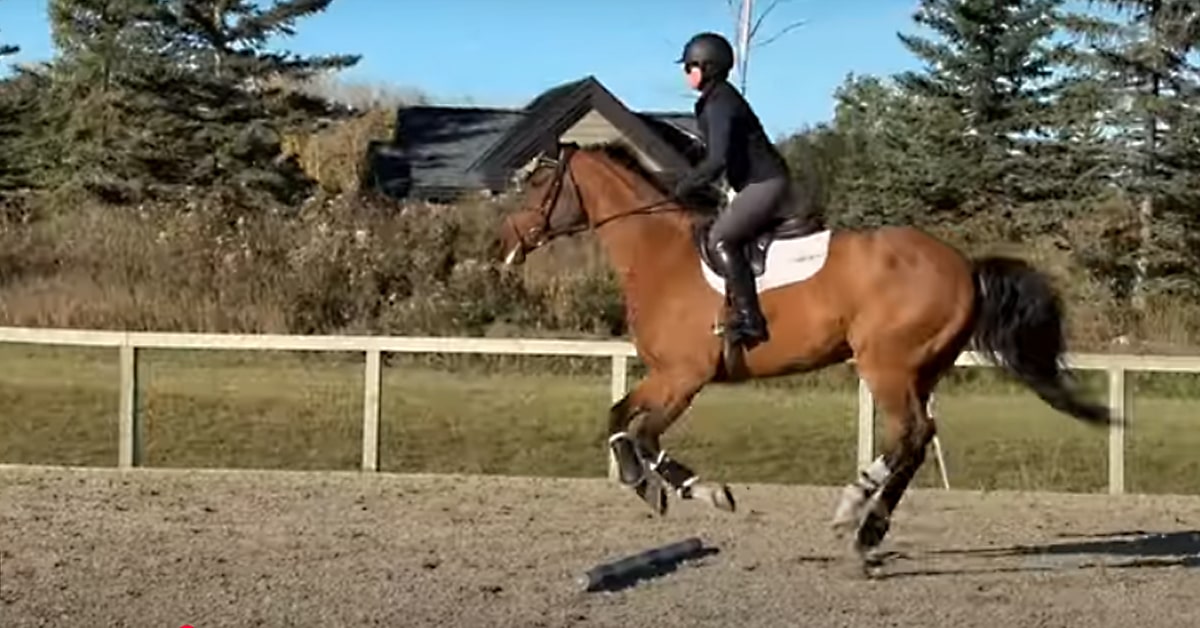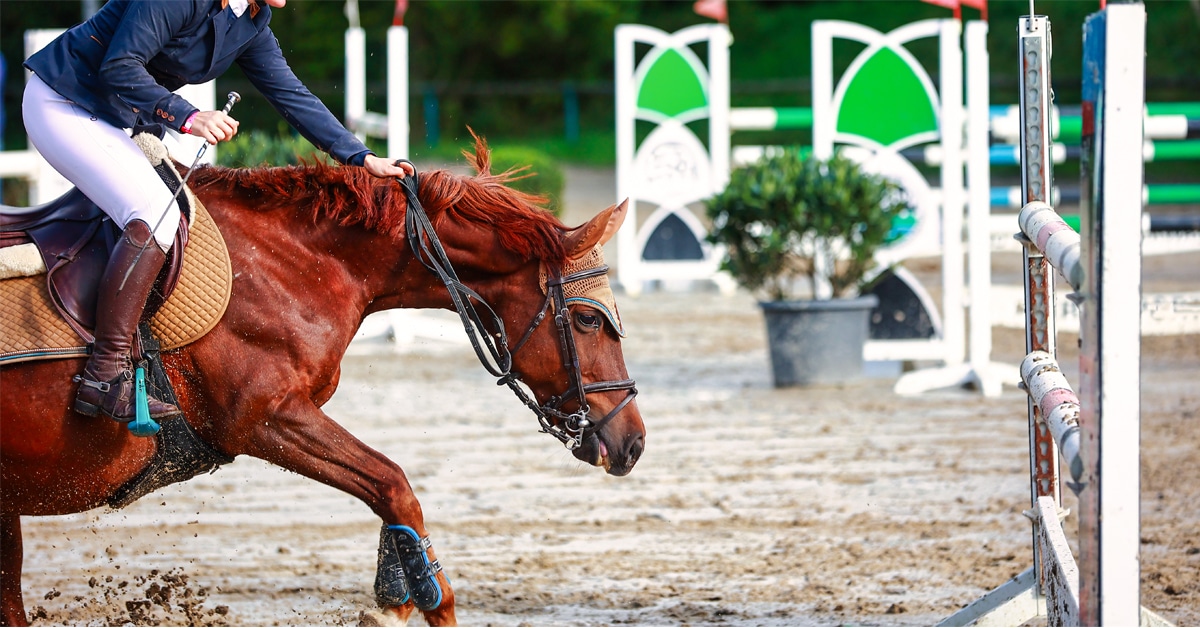We all hate making them, and we all get down on ourselves when we do. But in our sport, mistakes are unavoidable. Unlike many athletes, we can’t simply “run drills” in the same way. A basketball player can shoot the same shot a hundred times in a row, but jumping a horse is never identical twice. The horse reacts differently, the jump shows up differently, and sometimes our equine partners just get tired.
That means we, more than most athletes, have to learn to accept our mistakes without always being able to go back and fix that exact moment right away. That can be frustrating — sometimes painfully so. But frustration is an emotion that we can transmit to our horses, whether we mean to or not. Even if we never direct it toward them (and please don’t!), they still know when we’re upset. To them, there’s no difference between frustration aimed at ourselves and frustration aimed at them.
When I’m teaching lessons and introducing new skills, I try to design the exercises so that mistakes have as few consequences as possible. For example, instead of asking a rider to change a bad habit over a big fence, we might start with ground poles. It’s far easier to remind yourself to lift your eyes and not stare at the jump when the “consequence” of missing is minor, and not knocking down a fence. This way, the rider can focus on building the right habit without being weighed down by the fear of making an error.
One phrase we use often is “Let today suck.”
Why? Because when you’re changing habits, things that usually feel easy may suddenly feel very difficult. And that’s okay.
For example, we have a student who tends to cut her right turns when approaching a fence. To fix this, we ask her to ride a square turn instead, sometimes even using a pylon to go around. At first, this completely disrupts her sense of rhythm and makes finding a distance feel nearly impossible. That’s when we apply the “let today suck” rule. We keep the jumps small — or even just use poles — and practice square right turns over and over until they begin to feel natural.
The truth is, everyone develops little incorrect habits over time. Even with a good professional watching you, especially during show season it’s easy for shortcuts and compensations to creep in. That’s why this time of year is such a great opportunity: the pressure of constant competition eases and you have space to focus on improvement. Use this season to refresh your riding, polish your basics, and work on the habits that will make you stronger for the future.
Mistakes are part of the process. They don’t define your riding — they refine it.
And above all, allow yourself some grace. Change takes time; new habits don’t stick overnight, and that’s perfectly normal. One guideline we remind both our students and ourselves is to keep feedback fact-based. Saying “that sucked” or “that was terrible” might feel true in the moment, but it gives you nothing to build on. Instead, shift to statements that carry useful information:
- “I didn’t give myself enough time to establish a good canter to #1, so I didn’t have the power to get across.”
- “I needed to bring my horse back after that forward line before riding forward again.”
- “I leaned at the base, which threw off my horse’s balance.”
These types of observations are constructive. They not only explain what caused the problem, but also point directly toward what to practice next time. That’s how mistakes become lessons instead of roadblocks.
So the next time you feel frustrated, remember: mistakes are part of the process. They don’t define your riding — they refine it. Give yourself patience, give your horse kindness, and trust that each mistake is simply a stepping-stone toward better habits and stronger skills.
The Latest









